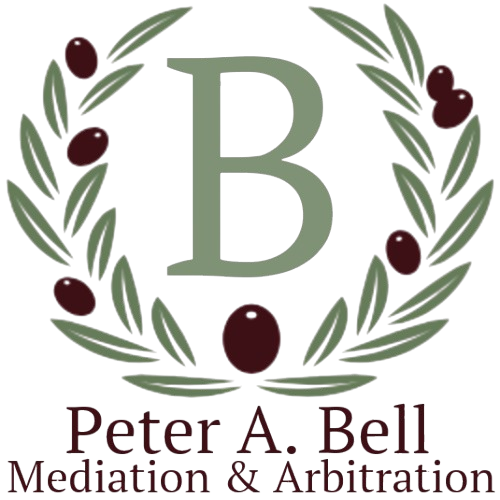<section class="mediation-insights”>
5 Key Elements of a Successful Mediation Process under Florida Law
Mediation has become an increasingly popular and effective way to resolve disputes in Florida, offering parties a cost-effective and efficient alternative to traditional litigation. Whether you’re involved in a civil, family, or commercial dispute, understanding the critical elements that underpin a successful mediation process is essential. Florida law has carefully shaped its mediation statutes and rules to encourage fair, voluntary, and confidential settlements. In this post, we will explore the five key elements that contribute to an effective mediation process under Florida law, offering practical insights and best practices for parties and practitioners alike.
By delving into these core elements, you’ll gain a robust understanding of how Florida’s legal framework supports successful mediation outcomes. From the foundational principles of voluntary participation and confidentiality to the nuanced roles of mediators and the formalization of agreements, this comprehensive guide is designed to be your authoritative resource on mediation in Florida. Whether you’re a party to a dispute, a legal professional, or someone interested in alternative dispute resolution, you’ll find actionable information and real-world examples throughout this post.
Table of Contents
- 1. Voluntary Participation
- 2. Confidentiality and Privilege
- 3. The Role of the Neutral Mediator
- 4. Good Faith and Preparation
- 5. Enforceable Agreements and Finality
- Conclusion
1. Voluntary Participation
At the heart of every successful mediation under Florida law is the principle of voluntary participation. Mediation is fundamentally a consensual process, where parties retain control over the outcome. While Florida courts may order parties to attend mediation, the decision to ultimately settle and the terms of any agreement remain entirely within the parties’ discretion. This core value is enshrined in the Florida Rules for Certified and Court-Appointed Mediators, which emphasize self-determination as an essential element of mediation.
Voluntary participation means that parties are not coerced into reaching a resolution and can freely enter into or withdraw from negotiations. This autonomy encourages open communication and fosters an environment where creative solutions can flourish. For example, in family law cases, the voluntary nature of mediation often leads to more durable and satisfying agreements, as both parties feel ownership over the outcome.

However, it is important to note that while attendance at mediation may be mandatory in certain Florida court proceedings, agreement is not. This distinction ensures that settlements are genuinely reflective of the parties’ interests, not simply the result of external pressure. The voluntary element of mediation is regarded as a best practice in alternative dispute resolution, and its presence is often a strong predictor of successful outcomes.
2. Confidentiality and Privilege
Confidentiality is a cornerstone of the mediation process in Florida and is rigorously protected by both state statutes and court rules. The Florida Statute §44.405 outlines the broad confidentiality protections afforded to mediation communications, ensuring that discussions, admissions, and documents prepared during mediation cannot be used as evidence in subsequent legal proceedings, except under very limited circumstances.
This statutory privilege encourages parties to be open and candid, knowing that what they say in mediation will not be used against them later in court. The confidential nature of mediation is critical for fostering trust and facilitating meaningful dialogue. For instance, in complex business disputes, parties may share sensitive financial information or discuss potential weaknesses in their legal position without fear of exposure.
Mediator confidentiality is equally crucial. Mediators are held to strict ethical standards and are not permitted to disclose mediation communications except as allowed by law. For more detail on how confidentiality is treated in mediation, the American Bar Association’s guide to mediation confidentiality provides an in-depth overview of both national and Florida-specific practices.
Despite these protections, there are exceptions. For example, threats of violence or fraud may not be protected, and certain disclosures may be required by law. Understanding the boundaries of confidentiality is vital for all participants in Florida mediation, as violations can have serious legal consequences.
3. The Role of the Neutral Mediator
The mediator’s role is central to the success of any mediation session. Under Florida law, mediators are impartial third parties whose primary responsibility is to facilitate communication, help clarify issues, and assist parties in exploring settlement options. Mediators do not act as judges or advocates; instead, they guide the process while maintaining neutrality and respecting the parties’ autonomy.
Florida has established rigorous standards for the certification of mediators, as detailed by the Florida Dispute Resolution Center. Mediators must complete specialized training, adhere to ethical guidelines, and continually update their skills. These requirements ensure that mediators possess the necessary expertise to manage complex disputes, maintain order, and foster an atmosphere of respect.

Neutrality is not merely a formality; it is vital to the legitimacy of the process. A mediator who is perceived as favoring one side risks undermining trust and the likelihood of a successful outcome. To preserve neutrality, mediators disclose any potential conflicts of interest and refrain from offering legal advice or making decisions for the parties. Instead, they use a variety of techniques—from caucusing (private meetings with each party) to reframing issues—to help parties overcome impasses and reach mutually agreeable solutions.
In Florida, mediators must also be sensitive to cultural, emotional, and power dynamics that may influence negotiations. By remaining neutral and supportive, mediators help level the playing field, especially in cases where there is a significant imbalance of power, such as in certain family or employment disputes.
4. Good Faith and Preparation
While Florida law does not explicitly require parties to mediate in “good faith,” courts and mediators alike recognize that a genuine, good faith effort is crucial for successful mediation. Good faith in mediation means more than simply showing up; it involves active participation, honest communication, and a willingness to consider reasonable solutions.
Preparation is a significant component of good faith. Parties who come to mediation with a clear understanding of their goals, a realistic assessment of their case, and an openness to compromise are far more likely to achieve positive outcomes. This may involve reviewing relevant documents, consulting with attorneys, or discussing possible settlement frameworks in advance. The mediation preparation checklist provided by the New York Courts, while not Florida-specific, offers a useful resource that can be adapted for Florida mediations.
Florida courts encourage parties to engage in meaningful negotiations, and some local rules require parties to have decision-making authority present at mediation. This ensures that any agreements reached are not delayed or undermined by the absence of key stakeholders. For example, in commercial disputes, having a company representative with full settlement authority present can expedite the resolution process.
Ultimately, good faith participation is reflected in the attitude and conduct of the parties. A collaborative spirit, respect for the process, and a focus on problem-solving, rather than blame, significantly enhance the likelihood of a successful outcome. Mediators are trained to recognize and address bad faith tactics, such as stonewalling or deliberate delays, which can derail the process.

5. Enforceable Agreements and Finality
The culmination of a successful mediation is a written agreement that is clear, comprehensive, and legally enforceable. Under Florida law, settlement agreements reached in mediation are binding and may be enforced by the courts, provided they are signed by the parties and meet basic contractual requirements. This principle is outlined in the Florida Bar’s article on enforcement of mediation agreements.
Drafting a solid agreement requires attention to detail. The agreement should accurately reflect all terms, resolve all outstanding issues, and be signed by all parties with authority to do so. Ambiguous or incomplete agreements can lead to further disputes and may be difficult to enforce. For this reason, many parties choose to have their attorneys present during mediation, or at least review the final agreement, to ensure it is legally sound.
In family law mediations, for example, agreements must address critical issues such as child custody, support, and property division in compliance with Florida’s family law statutes. In civil or commercial mediations, terms may include payment schedules, confidentiality clauses, or mutual releases.
Once the mediation agreement is signed, it typically becomes a legally binding contract. If a party fails to comply with its terms, the other party can seek enforcement through the courts. Florida courts are generally supportive of enforcing mediated agreements, provided the agreement was reached voluntarily, without coercion, and all parties clearly understood the terms. This finality is one of the great strengths of mediation, as it allows parties to move forward with confidence that their dispute has been resolved.
Additionally, the enforceability of mediation agreements in Florida is supported by the courts’ recognition of the importance of alternative dispute resolution in reducing judicial backlog and promoting amicable settlements. In rare cases where ambiguity or allegations of duress arise, courts will closely examine the mediation process and the language of the agreement to determine enforceability. For a detailed discussion of the legal standards applied, the Sixth Judicial Circuit’s mediation FAQs provide valuable guidance on common enforcement issues.
Additional Considerations: Florida’s Legal Framework for Mediation

Florida has one of the most comprehensive statutory frameworks for mediation in the United States, covering not only civil and family disputes but also specialized areas like dependency and probate cases. The Florida Courts’ mediation overview explains the range of cases subject to mediation and the various types of mediation programs available across the state. This diversity ensures that parties in nearly all types of disputes have access to structured, professional mediation services.
The Florida Supreme Court has also established certification requirements for mediators, detailed ethical rules, and continuing education standards to maintain the integrity and quality of the mediation process. These measures help ensure that mediators remain impartial, knowledgeable, and effective in assisting parties to reach voluntary, fair settlements. The legal infrastructure is designed to make mediation a trusted and reliable avenue for dispute resolution, whether the case involves a business contract, a divorce, or a landlord-tenant matter.
Best Practices for a Successful Mediation in Florida
While understanding the legal elements is crucial, parties can significantly improve their chances of a successful mediation by adopting certain best practices. First and foremost, thorough preparation is essential. This means not only understanding the facts and law relevant to the dispute but also being clear about your goals and your best alternatives to a negotiated agreement (BATNA).
Engaging in open, honest communication and being willing to listen to the other party’s concerns will help build rapport and trust, which are invaluable during negotiations. It’s also helpful to approach mediation with a degree of flexibility and creativity. Many disputes are resolved by thinking outside the box and considering solutions that might not be available in a courtroom setting.
Parties should also ensure that all necessary stakeholders are present or available during the mediation session, as decisions often require input or approval from people not directly involved in the dispute. Finally, keep in mind that mediation is a process, not an event; sometimes, it takes more than one session to resolve complex issues, and patience can pay off in the long run.
Common Challenges and How to Overcome Them
Even with the best intentions, mediation can present challenges. Impasses may arise due to entrenched positions, emotional barriers, or misunderstandings about the law or facts. Skilled mediators are adept at helping parties navigate these obstacles by reframing issues, finding common ground, and encouraging incremental progress.
Another challenge is the imbalance of power between parties, which can occur in cases involving employment, family, or consumer disputes. Florida’s mediation rules require mediators to be cognizant of such dynamics and to take steps to ensure that the process remains fair and balanced. This might include separate caucuses, additional breaks, or the involvement of support persons.

Occasionally, parties may be skeptical of mediation’s value, particularly if they believe their legal case is strong. In these situations, emphasizing the benefits of mediation—such as control over the outcome, privacy, and the potential to preserve relationships—can help encourage full participation. The vast majority of disputes that go to mediation in Florida are resolved successfully, saving time, expense, and the stress of prolonged litigation.
Takeaways
The mediation process in Florida is built on a foundation of voluntary participation, confidentiality, skilled neutrality, good faith, and the enforceability of agreements. These five key elements work in concert to create an environment where parties can resolve even the most complex disputes efficiently and amicably. Florida’s robust legal framework and the high standards imposed on mediators ensure that the process remains fair, effective, and accessible to all.
For anyone facing a legal dispute in Florida—whether in the context of family law, business, or civil litigation—mediation offers a powerful alternative to the courtroom. By understanding and embracing the principles outlined above, parties can approach mediation with confidence, knowing they have the tools and legal protections necessary to achieve a successful outcome.
If you would like to learn more about the mediation process, Florida’s official Alternative Dispute Resolution resources provide extensive guidance, forms, and educational materials. With the right preparation and a clear understanding of the process, mediation can turn conflict into opportunity and pave the way for lasting resolution.
Need help with 5 Key Elements of a Successful Mediation Process under Florida Law?

